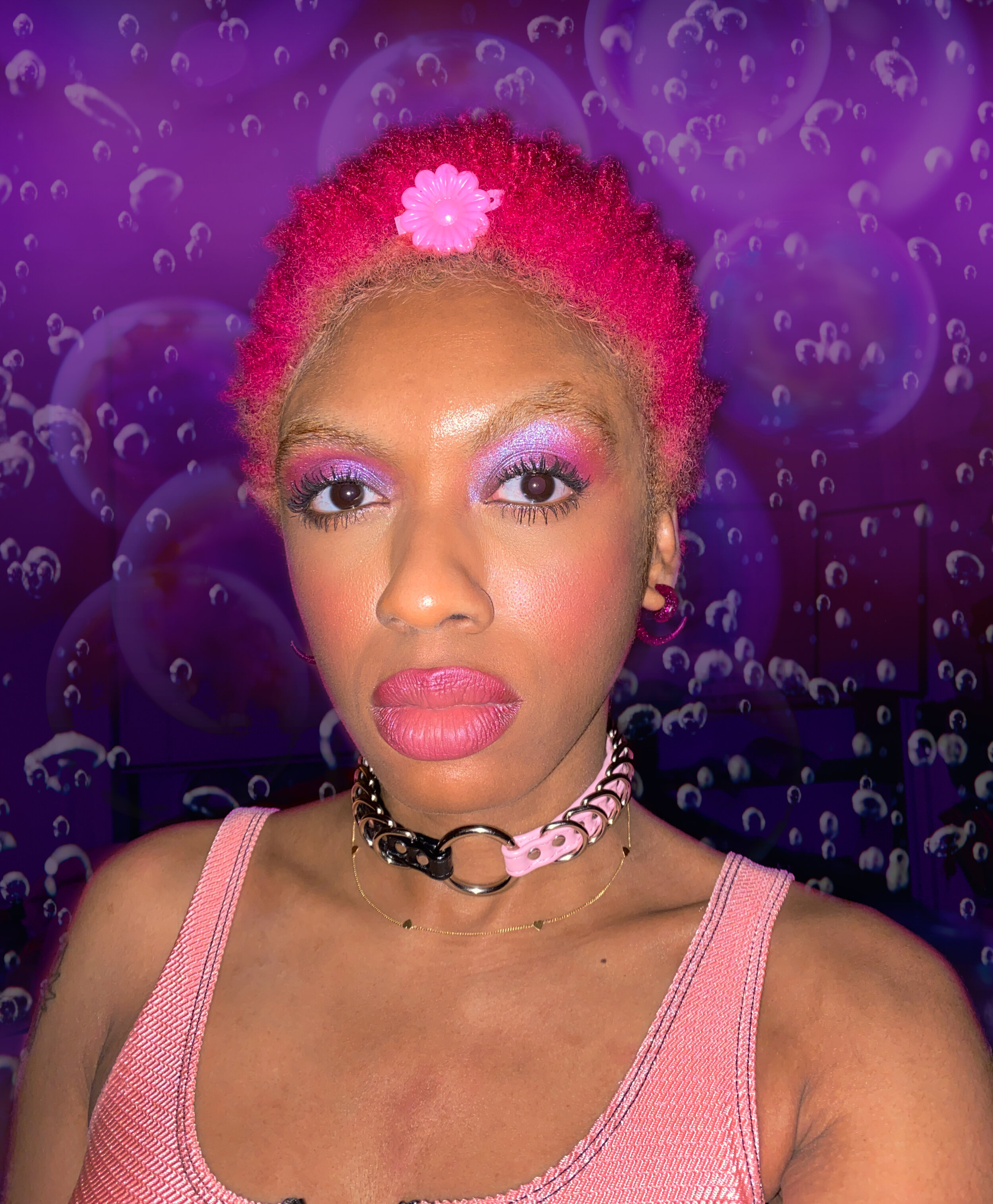RaFia Santana
RaFia Santana is a Brooklyn-born multidisciplinary artist using animated graphics, self portraiture, and music performance to self-soothe, seek pleasure, and crack jokes throughout their experiences with mental illness, chronic fatigue, sensory overload, and everyday racial violence.RaFia uses bright saturated colors and rhythm-centric productions to stimulate energy and attention. She uses hashtags & slogans as both memorization practice and call to action. RaFia constructs looping animations that “breathe” which calms her anxiety and helps her focus. She performs her music against her animations projected onto her body and stage, using singing and rapping lyrics to bring her slogans to life.
RaFia has exhibited their work at the Schomburg Center for Research in Black Culture, MoCADA, Tate Britain, the Museum of the Moving Image, and Times Square. They have been featured in Vogue, Teen Vogue, Paper Magazine, Cultured Magazine, VICE, and other leading publications. They have performed & participated in panels, discussions, and events at Black Portraitures at Harvard University, Pratt Institute’s Department of Digital Arts, Newspace Center for Photography, Afrotectopia at NYU’s Tisch School of the Arts, & MoMA PS1.
Transcript
My name is NTU and I'm based in Brooklyn, New York. My style of movement is really informed by contemporary dance and hip hop dance. You know when you train in dance, for a while and you're told, this is first and like, this is first. And, you know, there's this, there's this focus on just getting the technique down. Then there's also like "Yeah, there's grea"t, it's great that there's that foundation, but then you also need to learn that all that stuff is also made up, you know, and also comes from a very, like, European like, you know, kind of background. Every, every type of movement that you want to incorporate like a piece or in some kind of presentation is just that, that movement needs to be intentional, needs to communicate what you want to communicate, emotionally, or in terms of a story.
What I appreciated from my studio is that hip hop was taught by black people at that studio, and it was taught by black people who like just you know hip hop was a part of their life. So for me that relationship is really about another type of way that I can interact with the world, and it's another way I can interact with music and it's another way I can interact with people. Another way I can interact with myself and you know express myself.
I think like I have, like, moments of liberation literally went on like a moment on stage, where I'm like dancing and I'm like... caught it! Or like singing... caught it! Or I'm like producing a song... caught it! or talking with my friends. I think one thing that's been important for me is like, representing in my works, this idea of like, you know, I believe in this, this idea or this space, or the sound that I'm creating that I'm sharing, and I believe in this so much and I care about it so much, and I care so much that you're engaging with it. and I hope that allows people to equally care about their own investment.
Yeah, I think there's so much about finding the truth about the world is just investing oneself in it outside of the way that society or government or anything like that is organized.
